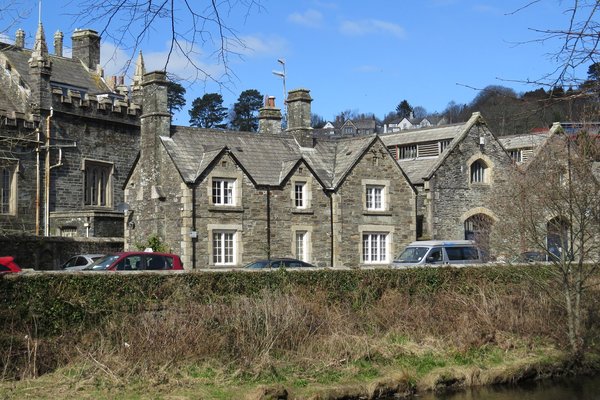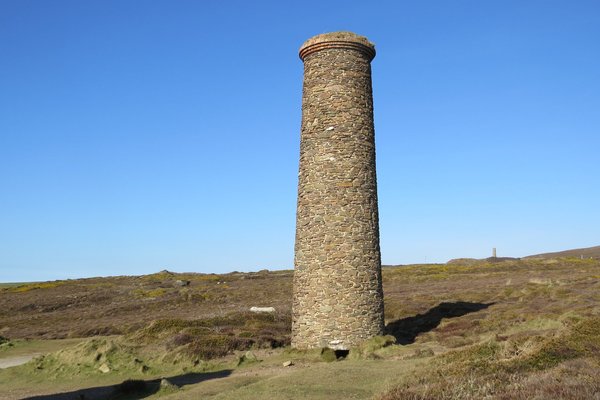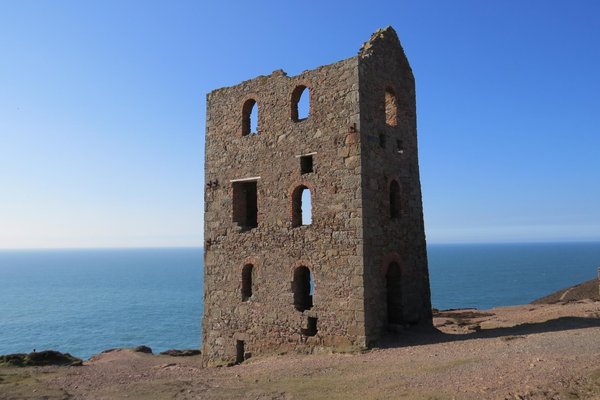United Kingdom
Cornwall and West Devon Mining Landscape
The Cornwall and West Devon Mining Landscape was transformed in the 18th and 19th centuries by industrialized copper and tin mining. Steam technology was pioneered here.
The remaining landscape is dotted with waste and spoil heaps and ruined mines, railways, canals and engine houses. Also, migrating Cornish miners have had an influence on mines all over the world.
Community Perspective: This site has a rather daunting scope and there are 10 subsites to choose from, with sights including the wonderful village of St Agnes, the unique open-air auditorium of Gwennap pit, and the photogenic St Just Mining District. It’s the easiest to explore by rental car because of the distances. Nan has described his adventures getting around on public transport.
Site Info
Official Information
- Full Name
- Cornwall and West Devon Mining Landscape (ID: 1215)
- Country
- United Kingdom
- Status
-
Inscribed 2006
Site history
History of Cornwall and West Devon Mining Landscape
- 2006: Inscribed
- Inscribed
- Type
- Cultural
- Criteria
- ii
- iii
- iv
Links
- UNESCO
- whc.unesco.org
- Official
-
- cornishmining.org.uk — Cornish Mining World Heritage
- Related
-
- stagnesforum.com — Ten Walks in the St. Agnes area
All Links
UNESCO.org
- whc.unesco.org — whc.unesco.org/
Official Website
- cornishmining.org.uk — Cornish Mining World Heritage
Forum Discussion
- worldheritagesite.org — Cornwall and West Devon Mining WHS
Related Resources
- stagnesforum.com — Ten Walks in the St. Agnes area
News Article
- Nov. 11, 2023 bbc.com — Heritage trust buys historic granite hill site
- Feb. 12, 2015 westernmorningnews.co.uk — £ 3.7m Heritage Lottery grant completes 10-year regeneration of historic Hayle foundry
- Oct. 3, 2014 westbriton.co.uk — Restoring Wheal Busy to its former glory
- Oct. 30, 2013 thisisthewestcountry.co.uk — £ 1.1 million funding boost for King Edward Mine
- May 1, 2013 bbc.co.uk — Carmears Tramway restoration project opened in Cornwall
- Sept. 16, 2009 news.bbc.co.uk — Financial collapse looms for the mining village at Morwellham Quay near Tavistock
- Dec. 2, 2008 falmouthpacket.co.uk — Delegation of Mexican officials visited Cornwall to press forward with the bid to recognise several Mexican sites as World Heritage "Frontiers of Cornish Mining".
- Aug. 16, 2008 thisiswesternmorningnews.co.uk — Cornish Mining heritage bid to 'go global'
- Jan. 22, 2007 news.bbc.co.uk — Park to mark mines heritage site
Community Information
- Community Category
- Secular structure: Mines
Travel Information
Recent Connections
-
Technological Developments
High-Pressure Steam (Trevithick Engine)…
-
Cycoliths (Stone circles)
The Hurlers, a set of three prehistoric…
-
Tin mining
"Camborne and Redruth with Wheal Peevor…
Connections of Cornwall and West Devon Mining Landscape
- Individual People
-
-
King Charles III
He "owns" various parts of this site as a result of his "position" as Duke of Cornwall. Locations include Drakewalls Mine, Prince of Wales Mine, Gunnislake Clitters Mine in the Tamar Valley Mining District. -
Sir Francis Drake
Drake was born c1544 in Tavistock within the inscribed boundary - "at Crowndale Farm, just to the west of what is now Tavistock College. A Blue Plaque is mounted on the current farmhouse, behind which Drake is believed to have been born, the original farmhouse having been dismantled and the stone transported for use in Lew Trenchard" -
Painted by JMW Turner
Tamar Valley Mining District. "Crossing the Brook". Early Turner (1815) showing the Tamar Valley and Calstock in the style of French 17th C painter Claude but with signs of industrialisation in the valley.See nga.gov.au
-
- Geography
-
-
Atlantic Ocean
The north coast on the Celtic Sea, part of the Atlantic Ocean (wiki) -
English Channel
1215-003ii Trewavas, 1215-008ii Charlestown and 1215-010i Tamar Valley Mining District, Morwellham Port . "The Trewavas coastal enclave in the south of the Area contains some important remains that mark the sites of old undersea copper mines. The cliff-slope engine house of Wheal Prosper was acquired by the National Trust and consolidated in 1971. The dramatic cliff-side engine houses, shafts and impressive capstan platform of Wheal Trewavas are amongst the most spectacular in their situation, anywhere"... "Charlestown, designed by the foremost civil engineer of the day - John Smeaton FRS (1724-92) - is one of the finest examples of late eighteenth- and early nineteenth-century industrial harbour works in Britain" ... Morwellham "is some 3km below the tidal limit near Gunnislake" ..."This was the busiest inland river port west of Exeter, taking vessels up to 300 tonnes. During the mid-nineteenth century it became the greatest copper ore port in the world" (Nom File)
-
- Trivia
-
-
Tourist Treks
South West Coast Path
-
- Ecology
-
-
Rias
"The Tamar river is a classic example of a Ria, flooded after the last ice age". Morwellham Quay remains tidal despite being many miles inland -
Granite rock formations
CornwallSee en.wikipedia.org
-
- World Heritage Process
-
-
Industrial Landscapes
-
Incorrect UNESCO 'Number of locations'
15 locations not 10 - Locations 1215-003,5,6,8 and 10 each consist of 2 geographically separate locations numbered "003i" and "003ii" etc -
First sites filling gaps cited by ICOMOS
Industrial landscape / coal energy (2006)
-
Perfect Inscriptions
2006
-
- Religion and Belief
-
-
Protestantism
Gwennap Pit (situated within the Gwennap mining district) was used by John Wesley, the founder of "Methodism" as a preaching site 18 times between 1776 and 1789. It has since become a Methodist "shrine". See
-
- Human Activity
-
-
Silver production
"Silver-bearing ores have been worked on the Bere Ferrers or Birland peninsula, between the Tamar and Tavy rivers south of Tavistock, for nearly six centuries. By the middle of the 19th century there were at least a dozen mines, some consolidated into larger setts." -
Golf Courses
Cape Cornwall Golf Course lies within the boundaries of St Just Mining district. -
Sea Ports
Port of Hayle and Portreath -
Tin mining
"Camborne and Redruth with Wheal Peevor and Portreath Harbour: .. the mineral resources of the granite ridge that dominates this area produced some of the richest and deepest copper and tin mines in the world" (AB ev)
-
Copper production
-
River Ports
Morwellham Quay: a historic river port in Devon, England that developed to support the local mines (wiki)See en.wikipedia.org
-
- Constructions
-
-
Cycoliths (Stone circles)
The Hurlers, a set of three prehistoric stone circles, is located in a section of Bodmin Moor which is within the Caradon Mining District section (A9) of the Site. (link)
-
Water Mills
At Morwellham Quay: "The ore-crushing plants driven by a 32-foot overhead waterwheel can be seen." (wiki)
-
Theatres and Opera Houses
Gwennap Pit (amphitheatre) -
Bazaars and Market Halls
Tavistock -
Dovecotes
Cotehele House - Stone Dovecote -
Canals
Tavistock canal -
Obelisk
At Billy Bray's grave at Baldhu ("unconventional and eccentric Methodist preacher during the 19th century in the copper and tin mining communities of Cornwall") -
Railways
"A high-quality transport network involving canals, railways and tramways connecting mines to ports was constructed in the early 19th century. This included ... tramways and railways at Poldice Plateway, Redruth & Chasewater Railway, Liskeard & Caradon Railway and the East Cornwall Mineral Railway."
-
- WHS on Other Lists
-
-
European Route of Industrial Heritage
Morwellham Quay, Geevor Tin Mine
-
- Timeline
-
-
Built in the 18th century
Between 1700 and 1814, the industrialisation of non-ferrous mining in Cornwall and West Devon transformed the landscape and the structure of society (AB ev)
-
- Science and Technology
-
-
Steam technology
innovative use of the high-pressure steam beam engine (OUV) -
Mines which can be visited underground
Tin, "Poldark Mine" (Originally "Wheal Roots Mine" 18th C workings opened to the public as a "tourist attraction") -
Technological Developments
High-Pressure Steam (Trevithick Engine). 1802 The first practical application of "strong steam" at 50 psi, utilizing cylindrical cast-iron boilers. This removed the requirement for a separate condenser, making engines compact enough for mobile use and efficient enough for deep-vein drainage (Crit ii "innovative use of the high-pressure steam beam engine")
-
News
- bbc.com 11/11/2023
- Heritage trust buys historic grani…
- westernmorningnews.co.uk 02/12/2015
- £ 3.7m Heritage Lottery grant comp…
- westbriton.co.uk 10/03/2014
- Restoring Wheal Busy to its former…
Recent Visitors
Visitors of Cornwall and West Devon Mining Landscape
- Alexander Lehmann
- Alex Goh
- alicemears
- Ali Zingstra
- ALS
- A. Mehmet Haksever
- Angela Vandyck
- Anna Wludarska
- Anne
- Argo
- Atila Ege
- awestix
- BaziFettehenne
- Bill Maurmann
- Birgitte Sørensen
- BJGreasly
- Bodil Ankerly
- Bram de Bruin
- Brendan Carroll
- Bropyk
- campmany
- Caspar
- CeeMon
- cflw
- ChrisN
- Christian Wagner
- Christravelblog
- Claire Bradshaw
- Cluckily
- Clyde
- Corinne Vail
- Daniel Chazad
- Danny L
- David Berlanda
- Digits
- Dimitar Krastev
- Dr. Caligari
- DutchHorn
- Echwel
- eej
- Elaine McArdle
- Elf21
- Ellen Nielsen
- Elliot
- Els Slots
- Erik G
- Erik Jelinek
- Eva Kisgyorgy
- Fan Yibo
- Filip Murlak
- finsbury_jo
- Frédéric M
- Gabbro
- Garry Jackson
- Gary Arndt
- gautamiyer23
- Gernot
- giloudepuertorico
- Grzegorz Andruszkiewicz
- Harry Mitsidis
- hegeline@icloud.com
- Ian Cade
- IreneKD
- Ivan Rucek
- Jakob F.
- Jakubmarin
- James Bowyer
- janameerman
- janem
- Janina Lehmann
- Janos
- Jan-Willem
- Jasam
- Jay T
- Jeanne OGrady
- Jesse S 2010
- JessicaDS
- Jezza
- Joebobs
- Joel on the Road
- Jonas Kremer
- JoshHad
- KarenBMoore
- Karito Vies
- Kbecq
- KentishTownRocks
- Kevin Padley-Knight
- kutasp
- Lara Adler
- Laurine
- leckie118
- Liamps91
- Lillybett
- Loic Pedras
- Luis Filipe Gaspar
- Luj3904
- Martina Rúčková
- Mathijs
- Matthewsharris
- mg:1
- MH
- Mikko
- Naim Y
- nan
- Neil McPaul
- Nihal Ege
- PabloNorte
- Pat Martin
- Patrik_globe
- Paul Schofield
- PeterA
- Peter Lööv
- Petteri
- Philipp Leu
- Philipp Peterer
- pietprive06@kpnmail.nl
- Piotr Wasil
- Qin Xie
- Rachel Perkins
- Ralf Regele
- Randi Thomsen
- Rob Wilson
- Roger Ourset
- Roman Bruehwiler
- Roman Raab
- Rosemary
- Rudegirl
- Sabrina Liebehentschel
- Sandra!
- saraleonela
- Schnitzel
- scubarrie
- Sergio Arjona
- Shandos Cleaver
- Shannon O'Donnell
- sibariam
- sime147
- Solivagant
- Squiffy
- SteveD92
- Stijn
- Sturuss
- Taotao Chen
- Tevity
- Thomas Buechler
- Thomas Harold Watson
- Thomas van der Walt
- Tim Allen
- TimPick
- Tom Flaten
- Toxicologist
- Tsunami
- usagi1974
- ValiaVeweth
- vino4vino
- V&M
- WestcountryWanderer
- Wojciech Fedoruk
- Wo_ko
- Zizmondka
- Zoë Sheng
- Александар Стојиљковић
Community Reviews
Show full reviewsTsunami
Cornwall and West Devon Mining Landscape
Cornwall and West Devon Mining Landscape (Inscribed)
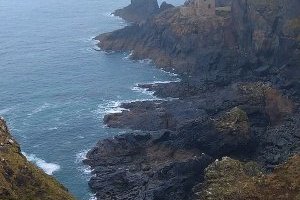
"The more mechanical you are, the freer you are." --- Robert Wilson
For this occasion to visit the UK, I decided to finish up the remaining WHSs in the UK except some islands. As such, it was my first time to travelled to the south-western England: Dorset, Devon, Cornwall and Somerset. If I am going to this part of England, I thought, I'd better go all the way to Land's End and thus chose St. Just as the place to visit among the 8 locations of this WHS.
There was an incredibly knowledgeable woman at the Penzance tourist office. She had good answers to just about everything I asked her and was passionate about the area she served. While asking her these questions, I revealed to her my plan in minute detail in the St. Just area, including the departure and arrival times of several buses I was going to take, and she was sort of excited, saying, "I have never met any tourists as organized as you are." Well, a plan doesn't always go as planned.
I stayed for one night at a YHA Land's End in St. Just, with my main reason being the price: 23 GBP for a single room. My plan was to walk from the hostel through Cape Cornwall to the Botallack / Levant Mines in the morning, catch a bus to Land's End in the afternoon, return to Penzance by bus and then to Exeter by train in the evening. But …
Keep reading 0 commentsnan
Cornwall and West Devon Mining Landscape by Nan
Cornwall and West Devon Mining Landscape (Inscribed)
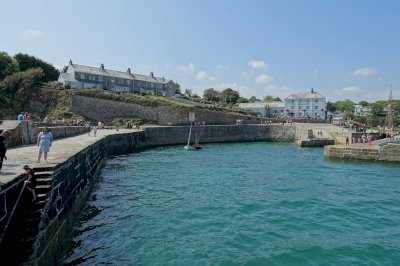
Cornwall voted for Brexit. This is somewhat surprising as Cornwall receives plenty of EU funding, being one of the poorest regions in the UK and qualifying for EU regional funds as a consequence. When visiting, I ran into plenty of "Funded by the EU" signs.
One part of the answer are myths about fishing rights. But I think parts of the answer are related to this world heritage site.
I had been to Cornwall as a kid and I had very fond memories of the place: It has great beaches and the weather tends to be better than in the rest of the UK. You can even find palm trees.
We did not pay attention to the decaying industrial heritage of the region, so I had to come again. I started my visit in the St. Just mining district, coming in by bus from Penzance where I had stayed for the night. The coast line around St. Just is dotted with very scenic abandoned mines on cliffs. Simply spectacular. I walked along the coast line and took picture after picture.
From there, I went to Hayle and found myself downloading the official Unesco map to make sure I wasn't missing anything. Hayle was an important town and harbour during industrialization. During it's heyday, the town was home to two major foundries, the Cornish Copper Company and Harvey & Co. You can still see their buildings in the town center. The town is now …
Keep reading 0 comments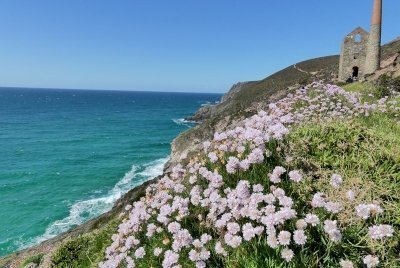
I visited this WHS in May 2019. Even though I was short of time, I was determined to drive on from Durdle Door to visit the rather remote mining landscape around St Agnes. I will surely be revisiting this WHS in the near future and next time I'll focus on other sites closer to St Just.
This time round I made the most of a gorgeous bright Spring day (although chilly and windy) to hike from St Agnes Beacon to Tubby's Head. Obviously my primary focus weren't the military remains along the Cornwall and West Devon Coast but the industrial remains of this rather complete and unique mining landscape.
Even though I'm certainly not a fan of industrial heritage, this WHS is one of the best examples of a huge mining landscape - where nature has been exploited and the landscape has been shaped into a once productive industrial landscape which is still aesthetically pleasing to see and discover. The surface remains around the Wheal Coates area include a boiler pond, stamp and whim engine houses, the Towan Roath shaft pumping engine house, a stack serving flues from whim engine houses and calciners, gas engine foundations, dressing floors, an exposed section of flue from a calciner which was used for roasting tin ore (the shaft is so deep that if you throw a rock down the hole, you won't hear a sound!), a double-bayed calciner, etc.
Nature is taking over once again and several sea birds, passerines …
Keep reading 0 comments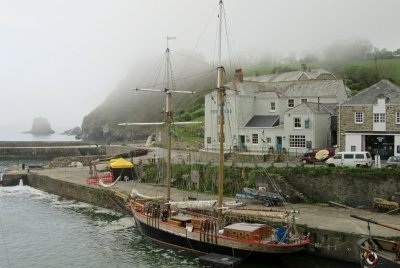
The scope of the Cornwall and West Devon Mining Landscape can seem rather daunting, with its multiple components, but after my visit last May, I felt I had a better understanding of its role in the Industrial Revolution. I appreciated the recommendations of other reviewers on this site to help focus my travels, and used the quaint town of Tavistock as a base for my two day tour. From Tavistock, which is well described already, I followed its canal south to the Victorian river port of Morwellham Quay. This open air museum includes a copper mine, a village with a large water wheel used to crush manganese, and a quay once famed for the amount of copper transiting through it. Similar to Morwellham was the atmospheric port of Charlestown, where fog was rolling in over tall ship replicas when I arrived. This coastal harbor in southern Cornwall was also used to transport the region's copper out to the world. Some of this copper ore was shipped north to the Welsh port of Swansea, which, thanks to its nearby coal reserves, became famous as a copper smelting city in the 18th and 19th centuries. One can easily enjoy touring Cornwall and Devon with no knowledge of this World Heritage Site, but I really appreciated learning about the region's mining history.
Logistics: I found it easiest to visit sites via a rental car, since there are so many sites spread out across the region. In addition to Tavistock, Morwellham Quay, and …
Keep reading 0 commentsCaspar
Cornwall and West Devon Mining Landscape
Cornwall and West Devon Mining Landscape (Inscribed)
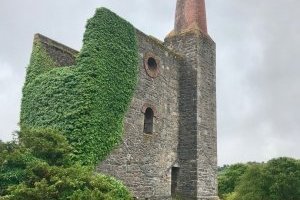
This site is hard to grasp since it is so wide spread, perhaps too wide. When I was traveling SW England this summer I wanted to see a representable part of it and decided to visit the two nearest areas: The Tamar Valley and the Cartoon Mining District. The Tamar Valley has a lot to offer: The lively town of Tavistock has evolved architectonically nicely from medival origin to its peak time in the 19th century. It has a impressive church where as often in England friendly elderly people drank and offered tea! You can walk along the quite natural river Tavi and parallel along the historically important straight Tavistock Canal. Have also a short look at the neogothic Mount Kelly College and if you like English cemeteries (as I do) there is a beautiful one right south of Dolvin Road. I can recommend the B&B The Cornish Arms, also for great Dinner and Breakfast. The nearby Tamar Valley is a lovely lush river valley, taken back by nature. There is a the interesting and historically important industrial site of Morwellam Quay. Also in this area are the Calstock Aqueduct and the estate of Cotehele: This is the mansion of a family that was closely linked with the industrialization of the area and includes an old mill and an industrial site at the river. I felt that this combination of nearby sites gave me quite a good overview of this WHS but I wanted to see at least one of …
Keep reading 0 commentsJakob F.
Cornwall and West Devon Mining Landscape by Jakob Frenzel
Cornwall and West Devon Mining Landscape (Inscribed)
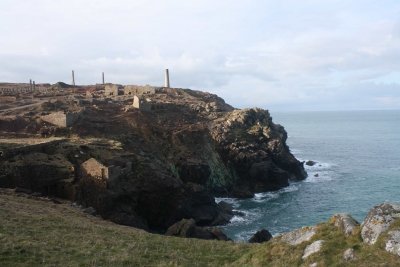
March 2018 - Cornwall was very high on our list. Not because of the industrial heritage, but we wanted to see the beautiful gardens and rhododendrons.
Afer spending the night in Exmoor NP, we continued our journey to Cornwall. We passed the City Tavistock, which apparently is part of the WHS. But we couldnt see anything really inetresting. We also passed St. Austell and the Wendron basin. Nothing out of the ordinary but surely important in history.
After spending the next night at Lands End, we entered the St. Just Mining Area.
That is quite impressive due to its position directly on the cliffs and the mysterious ruins. We took an 1h hike around the mines. The museums were closed that day, or at least that morning.
We still had a stop at the Port of Hayle after visiting some gardens and having Cornish Cream Tea, but again, i really didnt see the OUV.
Keep reading 0 commentsTom Livesey
Cornwall and West Devon Mining Landscape
Cornwall and West Devon Mining Landscape (Inscribed)
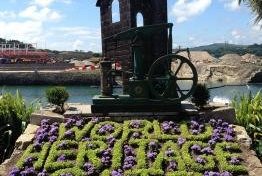
My parents live in Cornwall, so I often have the opportunity to see another of the 10 subsites. To date I have visited five of them.
St Just Mining District - in the far west of Cornwall you will find this is one of the most photogenic parts, with derelict mineshaft pumping stations clinging to the rocky coast. I suggest heading to the Count House at Botallack and walking from there.
The Port of Hayle - near to St Just, much less picturesque. This was an industrial centre, and you can see the remains of a foundry and millpond.
Gwennap Mining District with Devoran and Perran and Kennall Vale - a good way to see this subsite is to cycle the 11 mile miners' track. It takes you through quarry 'valleys'.
Tregonning and Gwinear Mining Districts with Trewavas - a split subsite: the main part is to an area of hilly heathland with good views from the top. Several miles away is also inscribed the village of Rinsey, where - like at St Just - you will find picturesque cliffside mine buildings.
Tamar Valley Mining District with Tavistock - this site is in the far east of Cornwall, where it borders Devon. Again, it is a split subsite, with one part featuring Kit Hill (very windy when I visited) and the other referring to the town of Tavistock (technically in Devon). It is a handsome mining town that was prettified by the 7th Duke of Bedford.
Keep reading 0 comments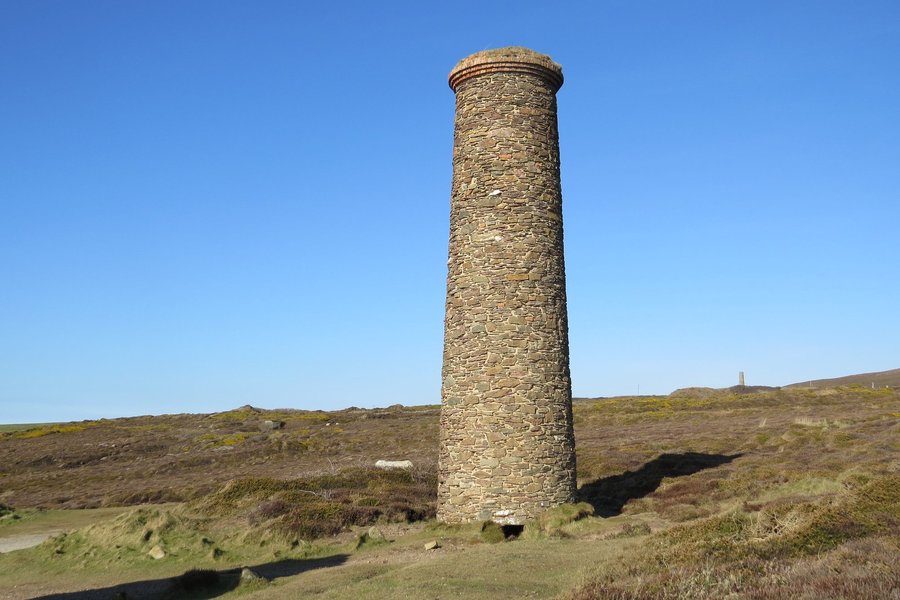
The Cornwall and West Devon Mining Landscape is one of the more remote sites on the UK mainland. The closest international airport I could fly into was Bristol, still a 2-hour and 45-minute drive away from my first destination. The WHS is spread out over 10 locations, most even further at the tip of Cornwall and totally out of reach for my weekend trip. Together they form a partly relict and partly evolving cultural landscape, the result of 18th and early 19th-century copper and tin mining.
I had been advised to start at St. Agnes Mining District. St. Agnes is a coastal village with a mining history since prehistoric times. I had brought with me a print of a 9km circular walk along the coast, taking in some of the mining ruins. After parking the rental car in the town center, I started walking immediately. The signage isn't great, but somehow I found my way to the Trevaunance Cove. From here, copper ore was shipped to Wales for smelting, and coal and other goods were unloaded for use at the mines. Already on this first stretch, I saw a couple of the characteristic chimneys from the former mines. It's a very pretty landscape.
After my lunch at the Driftwood Spars (a former warehouse), I started hiking the full loop along the coast. There were numerous people about, often walking their dogs or just enjoying the sunny weather as I did. The leaflet I brought pointed out several points of interest …
Keep reading 0 commentsIan Cade
Cornwall and West Devon Mining Landscape
Cornwall and West Devon Mining Landscape (Inscribed)
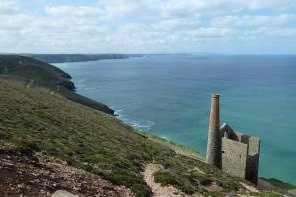
This was the site with which I finally 'completed' my home island of Britain so obviously I was always going to be happy with it, but it formed the basis of a lovely long weekend in the 'West Country'. It also enabled us to discover what “World Heritage” is in Cornish “Ertach an Bys” if you were wondering.
The idea of trotting around disused mines and remnant industrial wastelands may not instantly appeal; my wife wasn't necessarily so keen on the idea. But the reality of a trip can actually be very enjoyable, mostly due to the natural setting of the sites. This is best seen at the wonderful village of St Agnes. It sits above a quintessentially Cornish beach, where we sat and watched the coast guard rowers set off around the headland, before looking up at the looming chimney stacks of the former mine on the cliffs above, a more enjoyable way to spend a Saturday morning would be hard to find. Just outside the village are the stunningly situated industrial remains of Wheal Coates which to my eye were the highlight of the WHS, not just because of the impressive vistas, but because you can also comprehend the mines stretching out under the sea below.
Our weekend took us around every one of the inscribed locations, the other highlights were the unique open air auditorium of Gwennap pit, made famous by Methodist preacher John Wesley. The surrounding landscape was also frequented by the Heavyweights of the early …
Keep reading 0 commentsEva Kisgyorgy
Cornwall and West Devon Mining Landscape
Cornwall and West Devon Mining Landscape (Inscribed)
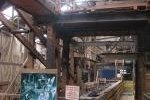
I visited the Geevor Tin Mine in Cornwall. There is an informative website (how to get there, opening hours, etc.) at http://www.geevor.com/
I took bus no 17 from Penzance. There are a couple of buildings one can visit and a very interesting underground tour to a mine tunnel - highly recommended.
All the mines in the area were family businesses, with just 10-20 employees. The Geevor mine is about 300 years old and was just recently discovered.
If you stay in Penzance, there are lots of other great places to visit in the area: St Ives, Minack theater, Scilly island, etc.
Keep reading 0 commentsjohn booth
Cornwall and West Devon Mining Landscape
Cornwall and West Devon Mining Landscape (Inscribed)
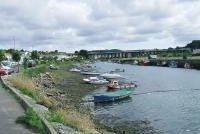
Over a few days I managed to visit a number of the sites:
Hayle - port for exporting tin
Wendron mining district - the Poldark mine with its interesting museum and exhibits
Portreath harbour - port for importing coal and exporting tin; many old mine workingws in this area
St Agnes - many derilict mine wotkings
Luxulyan - a mining village and Treffrey viaduct
Tamar valley - several derilict smelters seen from the train to Gunnislake
I visited all of the above by train or bus from Truro
Keep reading 0 comments
